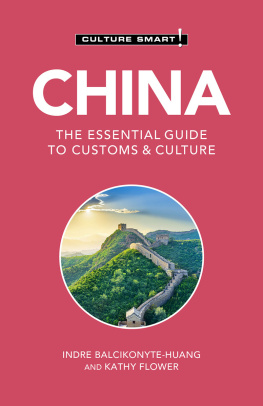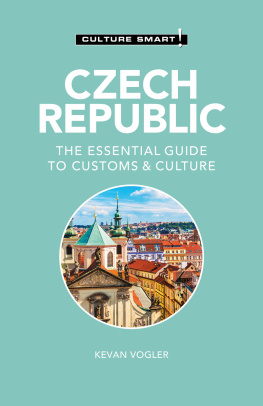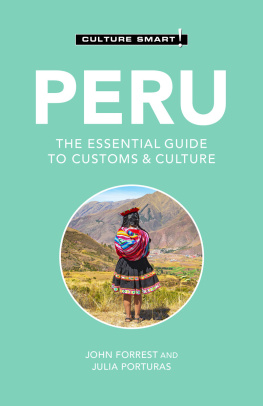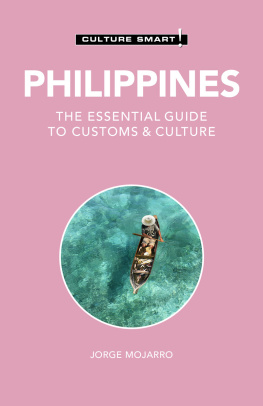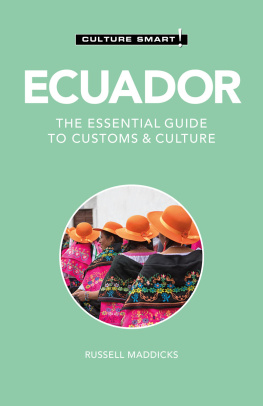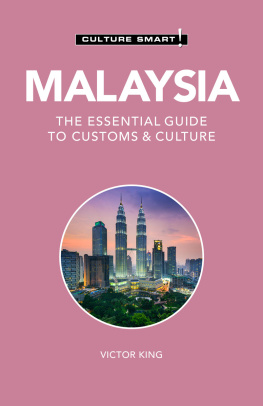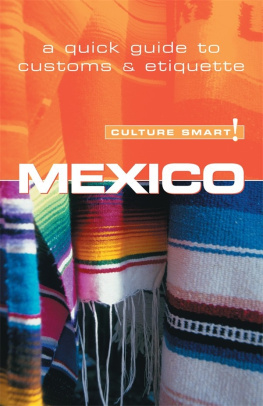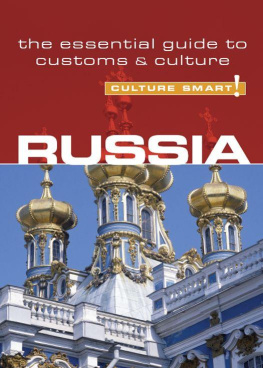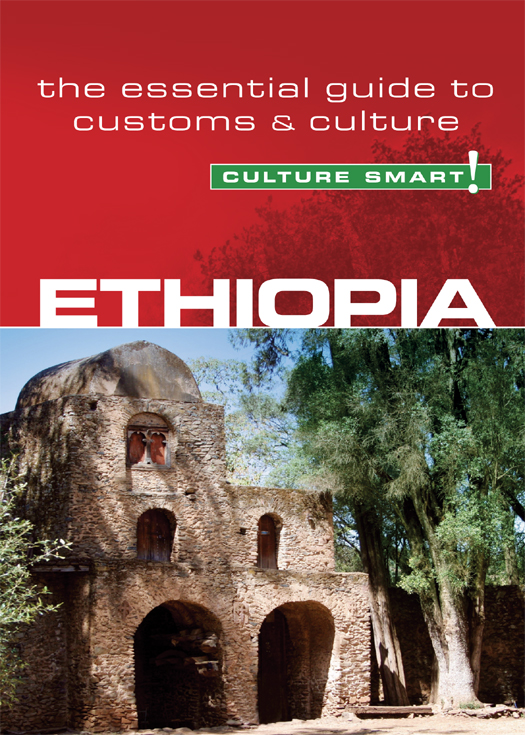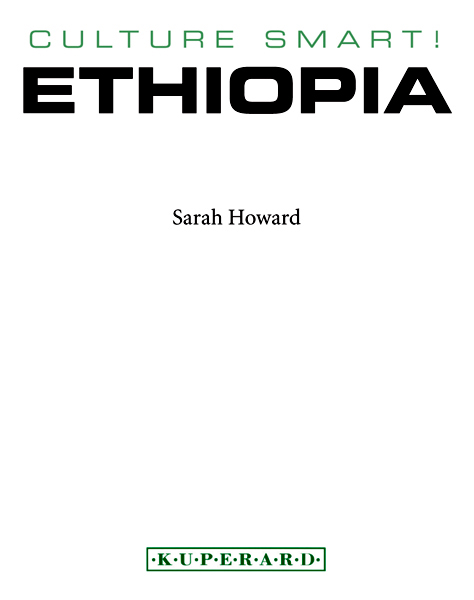eISBN: 978-1-85733-620-7
British Library Cataloguing in Publication Data
Copyright 2010 Kuperard
All rights reserved. No part of this publication may be reprinted or reproduced, stored in a retrieval system, or transmitted in any form or by any means without prior permission in writing from the publishers.
Culture Smart! is a registered trademark of Bravo Ltd
First published in Great Britain 2010
by Kuperard, an imprint of Bravo Ltd
59 Hutton Grove, London N12 8DS
Tel: +44 (0) 20 8446 2440 Fax: +44 (0) 20 8446 2441
www.culturesmart.co.uk
Inquiries:
Series Editor Geoffrey Chesler
Cover image: Old brick church in Gondar, Amhara. Carolyne/Dreamstime.com
The illustration on are reproduced by permission of the author.
Images on
Images on the following pages reproduced under Creative Commons License Attribution 2.0, 2.5, and 3.0: Philip Kramer
v3.1
About the Author
SARAH HOWARD is a botanical artist and writer who spent her childhood in Kenya. After graduating in African History and Social Anthropology from the School of Oriental and African Studies, University of London, in 1977, she became a journalist and researcher for two Anglican mission agencies, and undertook the archiving of the Leakey family papers in Kenya. After her marriage, she began commuting between Scotland and Ethiopia: in Scotland she runs a small business specializing in roasting Ethiopian coffees; in Ethiopia she is currently painting portraits of endemic plants. She helped illustrate the seminal Flora of Ethiopia and Eritrea (Addis Ababa University), and has written articles about the country for Selamta, the in-flight magazine of Ethiopian Airlines.
The Culture Smart! series is continuing to expand.
For further information and latest titles visit
www.culturesmart.co.uk
The publishers would like to thank CultureSmart!Consulting for its help in researching and developing the concept for this series.
CultureSmart!Consulting creates tailor-made seminars and consultancy programs to meet a wide range of corporate, public-sector, and individual needs. Whether delivering courses on multicultural team building in the USA, preparing Chinese engineers for a posting in Europe, training call-center staff in India, or raising the awareness of police forces to the needs of diverse ethnic communities, it provides essential, practical, and powerful skills worldwide to an increasingly international workforce.
For details, visit www.culturesmartconsulting.com
CultureSmart!Consulting and CultureSmart! guides have both contributed to and featured regularly in the weekly travel program Fast Track on BBC World TV.
contents
Map of Ethiopia
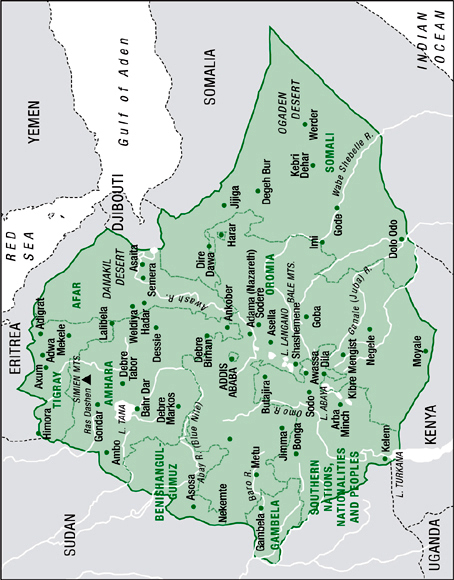
introduction
Set in Africa, but not wholly African; an isolated nation, yet receptive to the outside world; hierarchical and conservative, yet innovative and desirous of modernity; conformist as a people, and yet fiercely independent as individualsthe Ethiopian identity defies definition. No sooner have you made a generalisation than you realise it does not apply to some other part of the country. This is because Ethiopia was once an empire, made up of many different peoples and cultures.
On the whole this book describes Ethiopias dominant culture, which is Orthodox Christian, highland based, and uses Amharic as its first or second language, and makes reference to other regional cultures where it seems necessary.
Ethiopia exists simultaneously in different time periods. It has a long documented history, and is undergoing very great change. Its people, when they see something new that might work to their advantage, will embrace it and find ways to improve on it. Modern democracy, however, has understandably been slower to achieve given the strong historical antecedents of its monarchy.
Then there is the question of urban and rural life. Most Ethiopians live in the countryside, in much the way their great grandparents did. City folk could almost be another race. Their chic dress and skills on the computer belong to the Western world; but their prowess as horsemen, and skills as herbalists, belong to the countryside. The book focuses mainly on urban Ethiopians because they are the ones most likely to be encountered by foreigners. But, for perspective, everything we state should be tested against what rural people think or do.
All Ethiopians are proud of their history. They are so proud, in fact, that some outsiders see them as arrogant. They are, perversely, also almost proud of the fact that their country was not modernized as quickly as other African states with a colonial past: their freedom is worth more to them than having an infrastructure for economic development. Ethiopians are also passionate about bureaucracy. They feel no need to question it, although they can be masters of evasion, and bluff in the face of overbearing rule.
Outwardly formal and courteous, Ethiopians have a great sense of fun. They are witty and have a penchant for puns, and hugely enjoy slapstick.
Their courtesy is born of the consciousness of being members of a multilingual and multicultural polity, where in order to get on, people have to respect each other. When foreigners experience this, it is not because they are seen as superior (most Ethiopians believe they are in most respects superior to Westerners) but because they are being treated to the same politeness as an Ethiopian from a different region.
This book goes a short way toward introducing you to the Ethiopian peoples. Enjoy Ethiopia, and you will be warmly embraced by your hosts.
Key Facts
| Official Name | Federal Democratic Republic of Ethiopia | The older name Abyssinia properly refers only to the Amhara and Tigray regions. |
| Capital City | Addis Ababa | Pop. 3.5 million (est.) Altitude 7,870 ft (2,400 m) |
| Administrative Regions and Capitals | Afar (Asaita); Amhara (Bahr Dar); Benishangul-Gumuz (Asosa); Gambela (Gambela); Harar (Harar); Oromia (Addis Ababa); Somali (Jijiga); Southern Nations, Nationalities and Peoples (Awassa); Tigray (Mekele). Addis Ababa and Dire Dawa are chartered cities with the same status as the regions. Addis Ababa is the countrys capital, capital of a region, and a chartered city. |
| Official Federal Languages | Amharic is the official state language. English is the official foreign language. | Each region has its official language. Some use the Latin alphabet, others a script derived from the Geez language. |
| Area | 435,000 sq. miles (1.14 million sq. km) |
| Borders | Eritrea, Djibouti, Somalia, Kenya, Sudan |
| Climate | Temperate to alpine in the mountains; tropical in the lowlands. Varies with altitude and aspect | Two main seasons: dry from Oct. to May, and wet from June to Sept. Poss. short rains in March and April |


